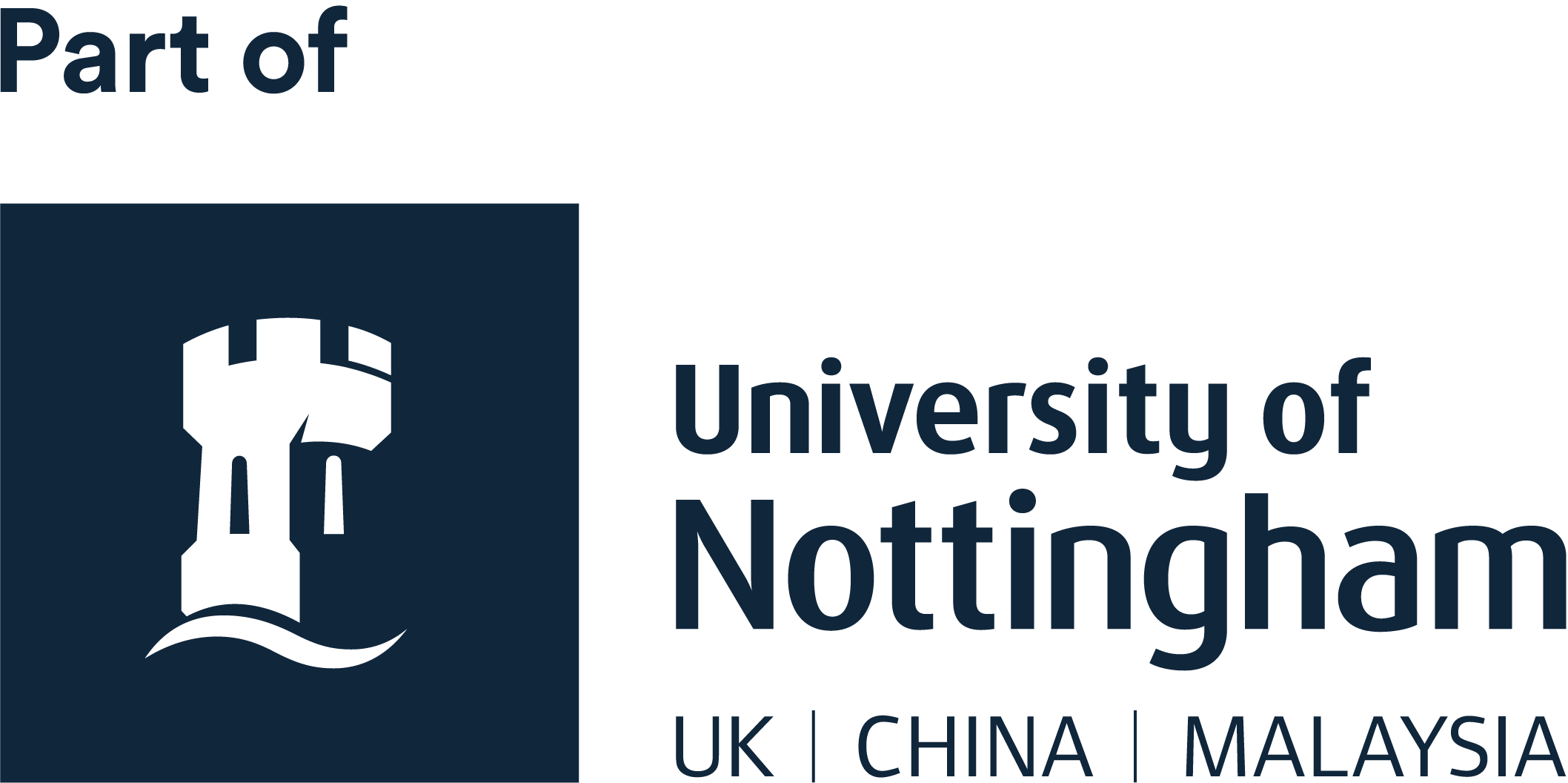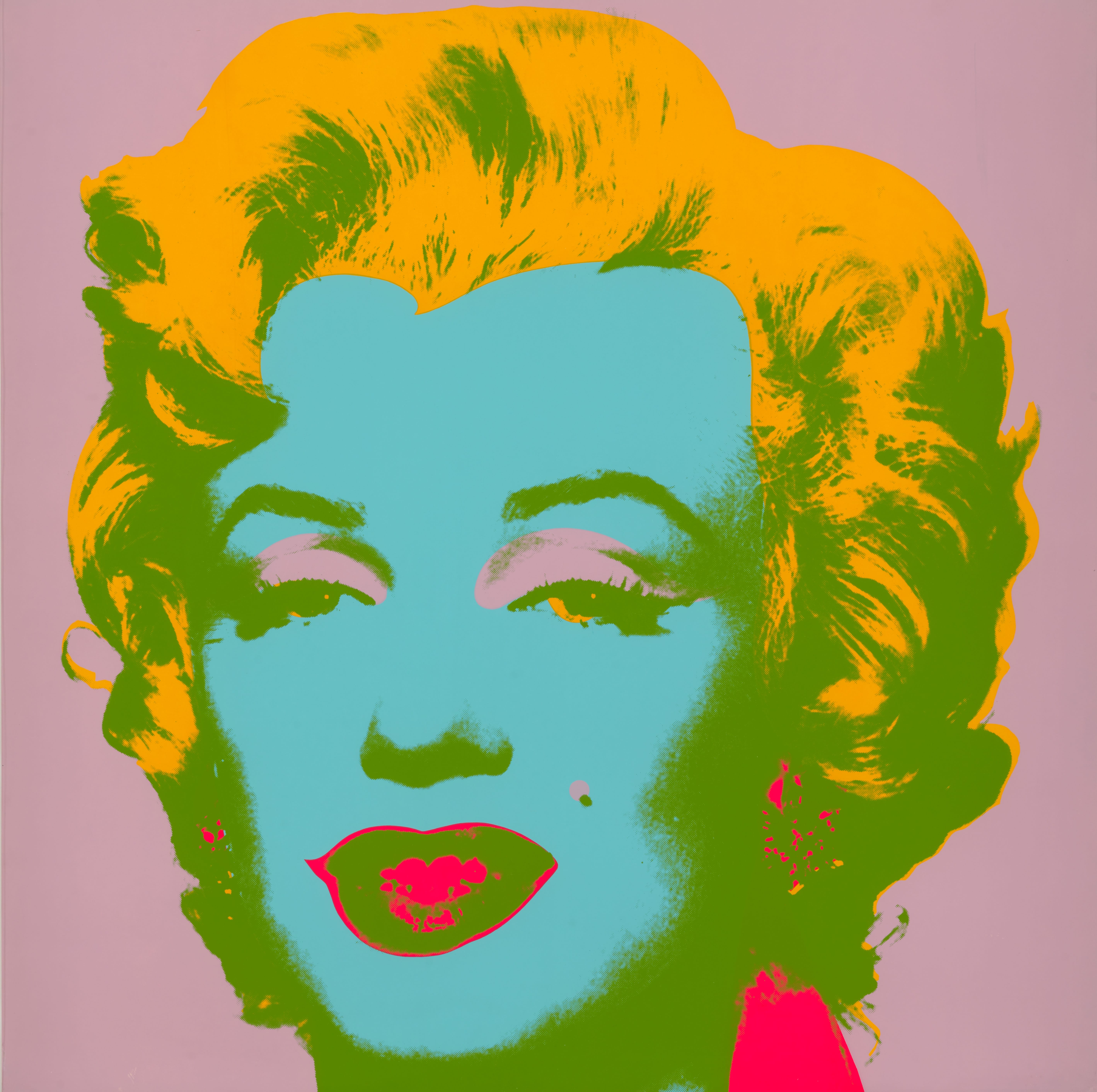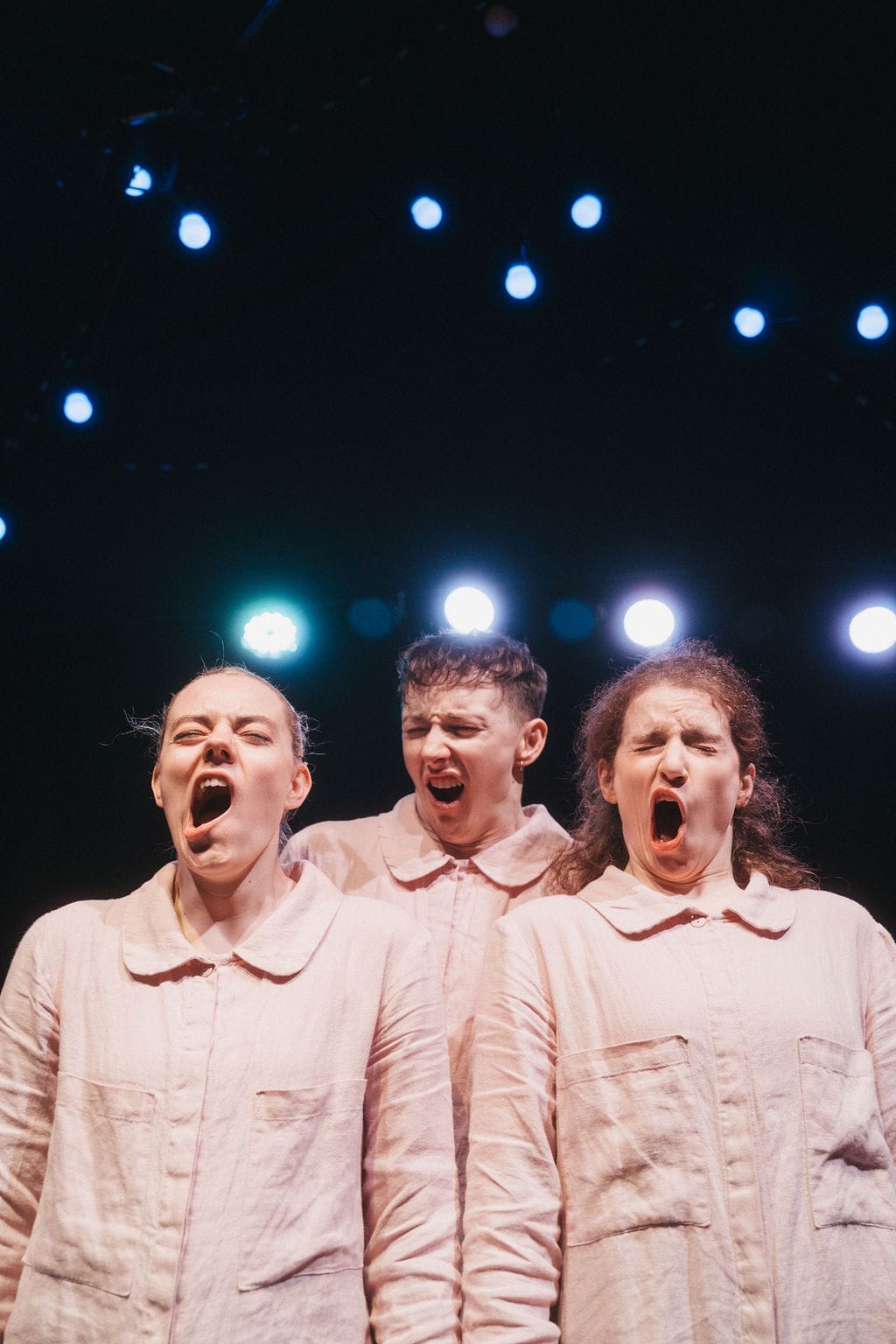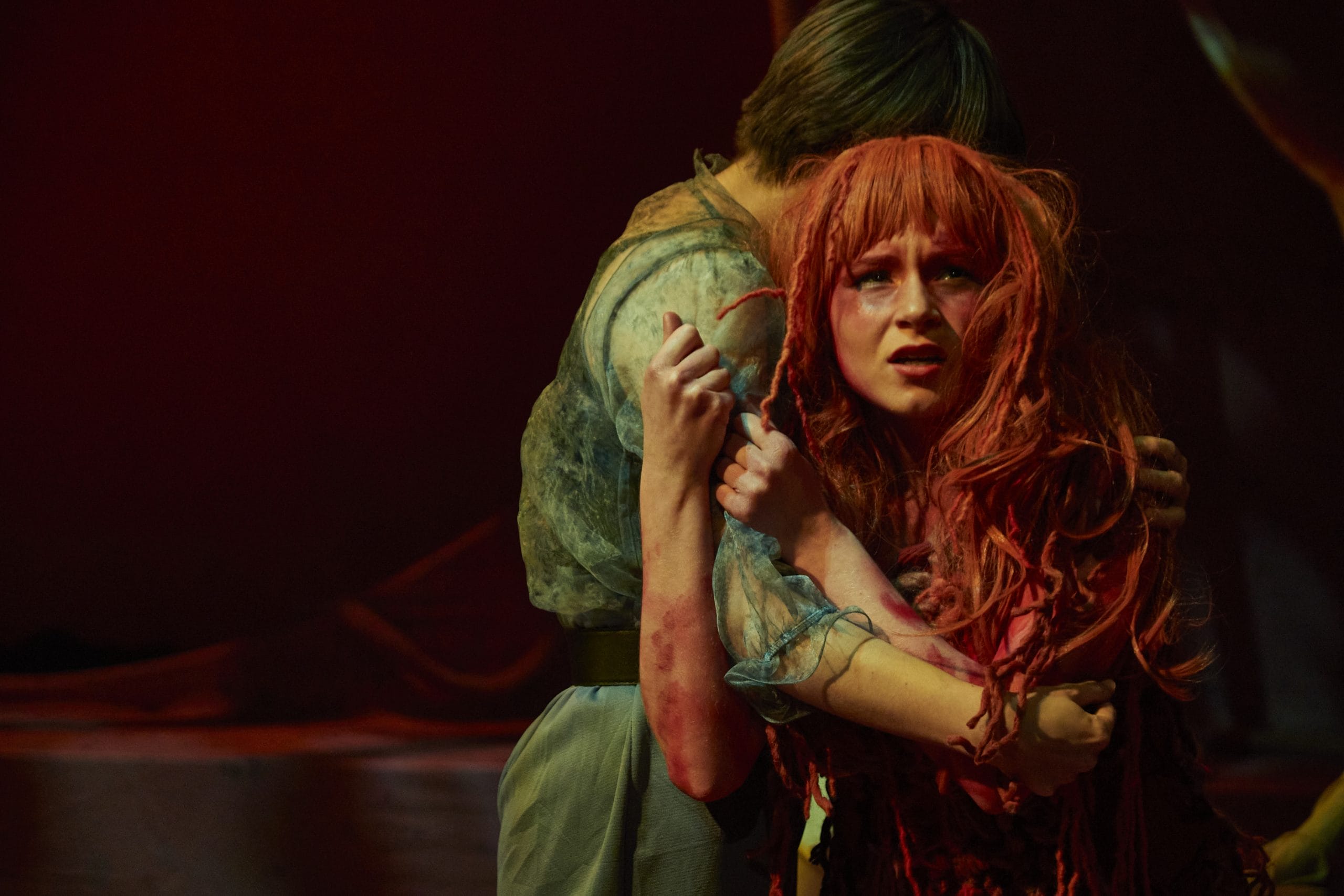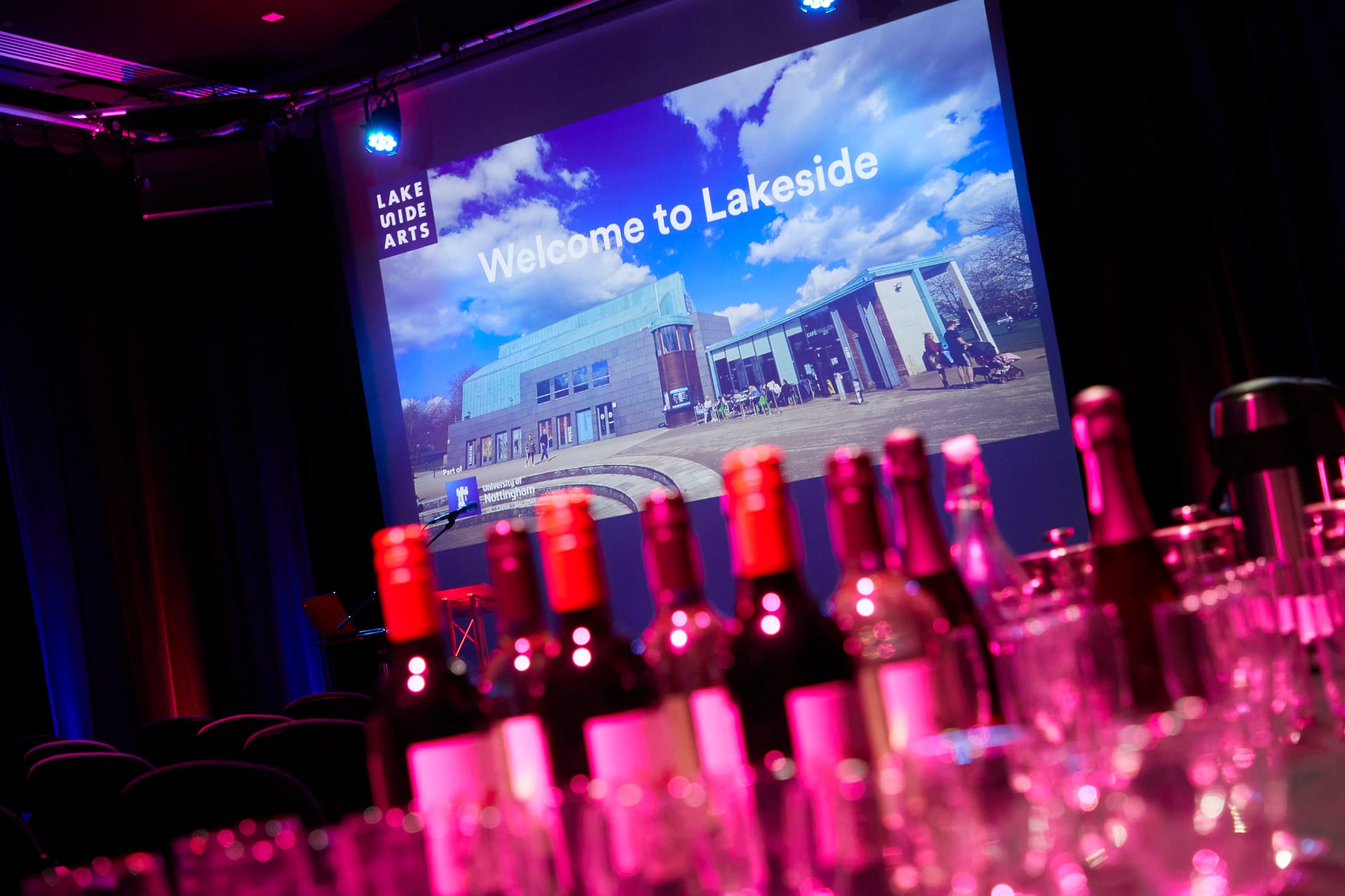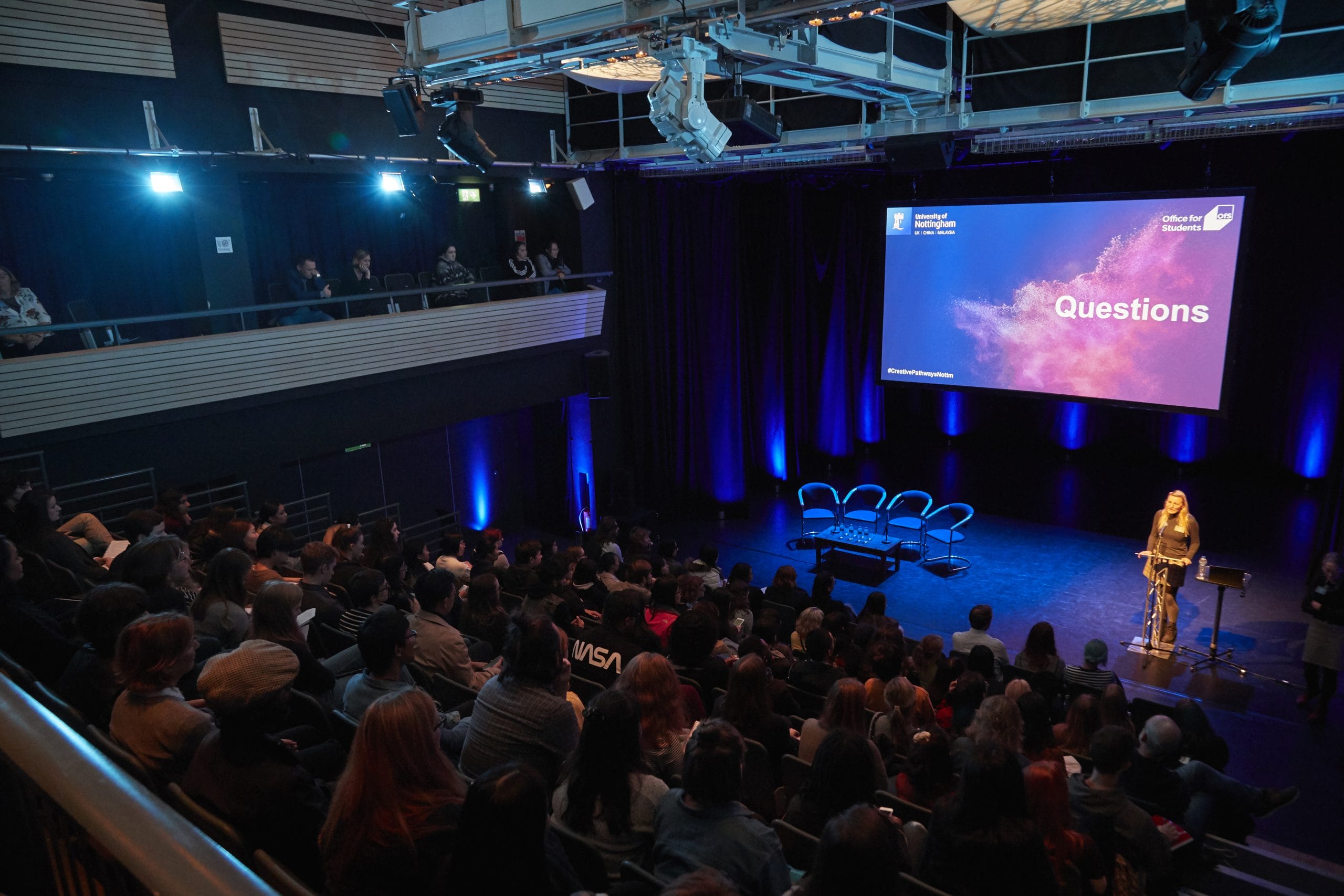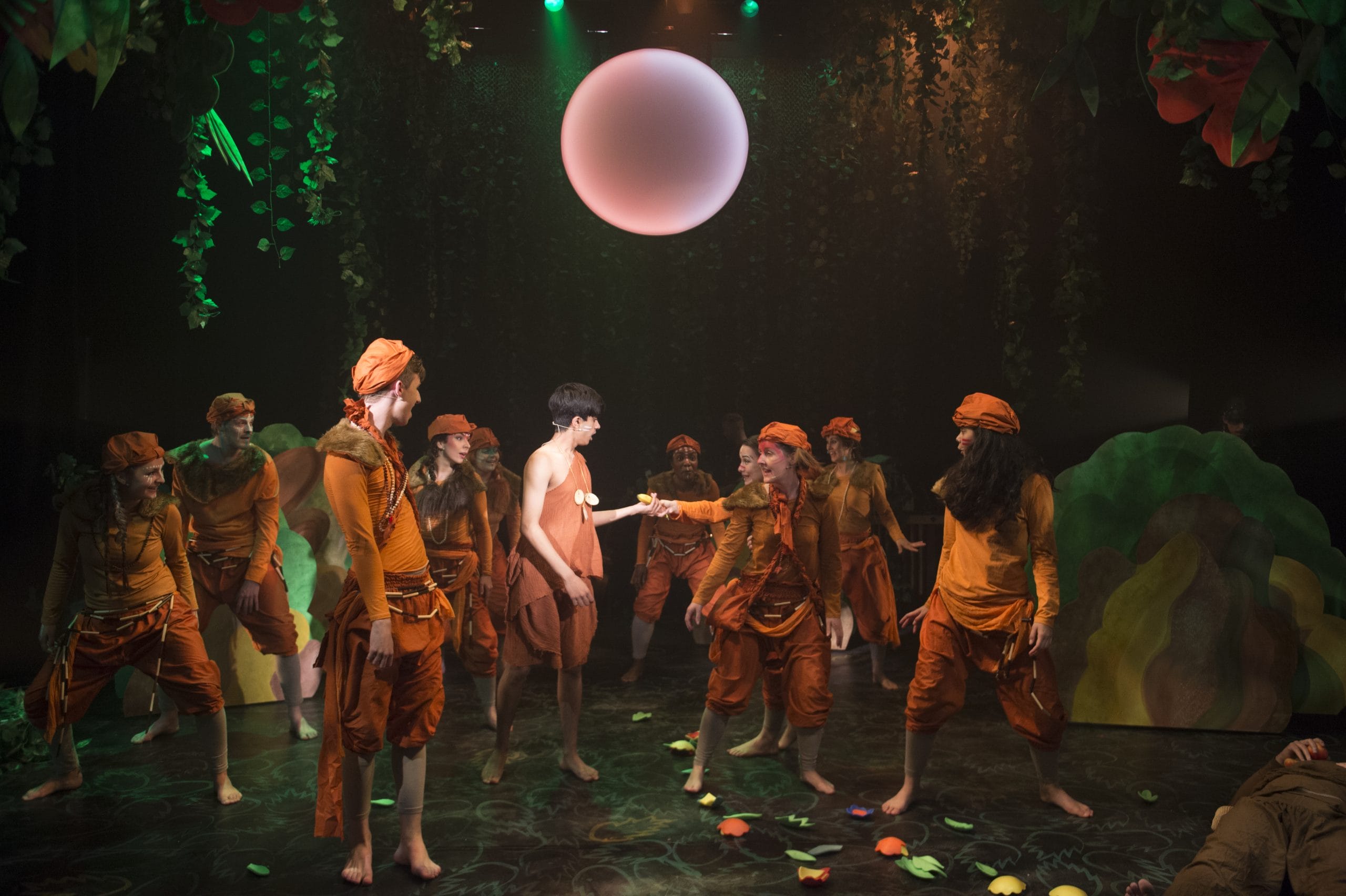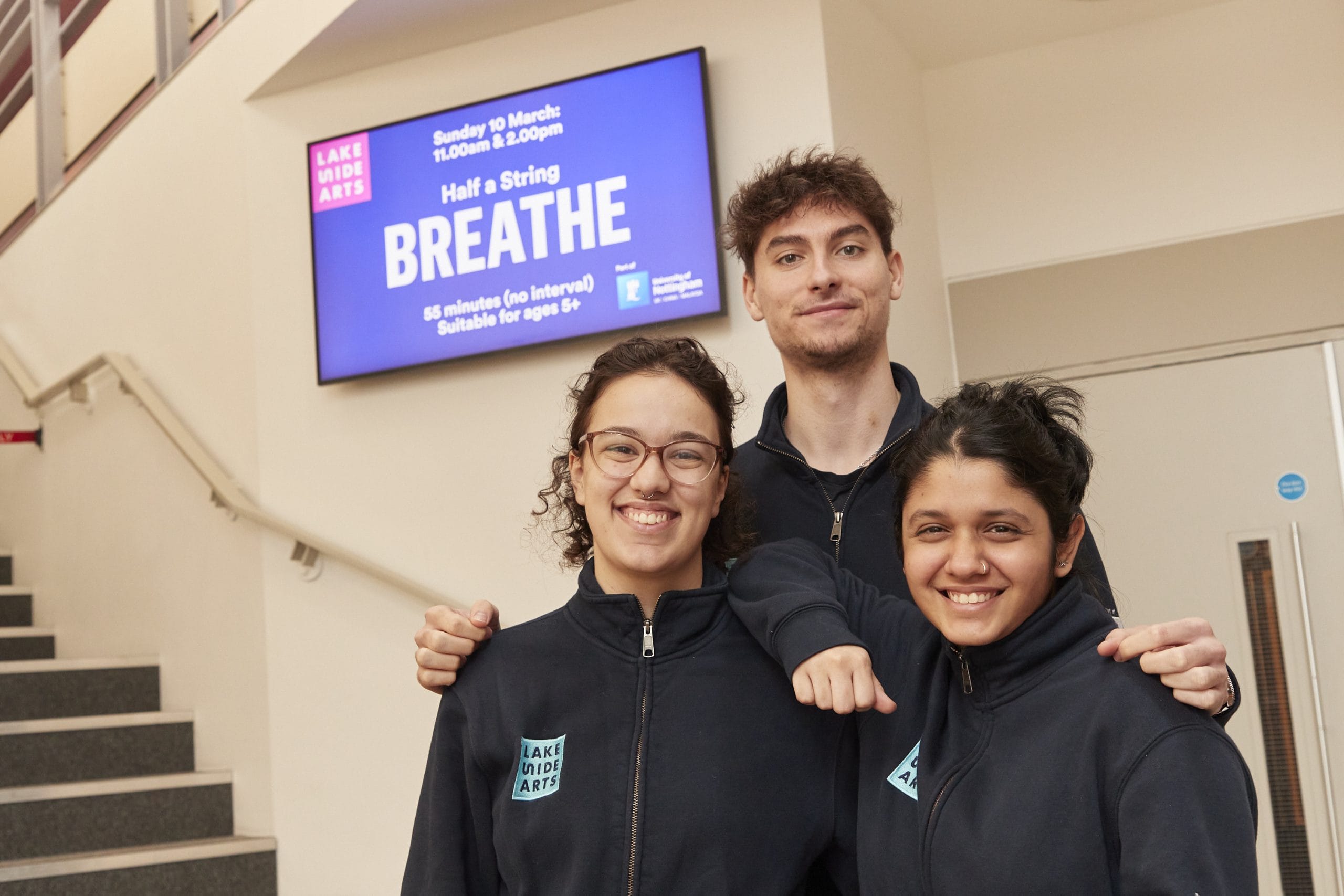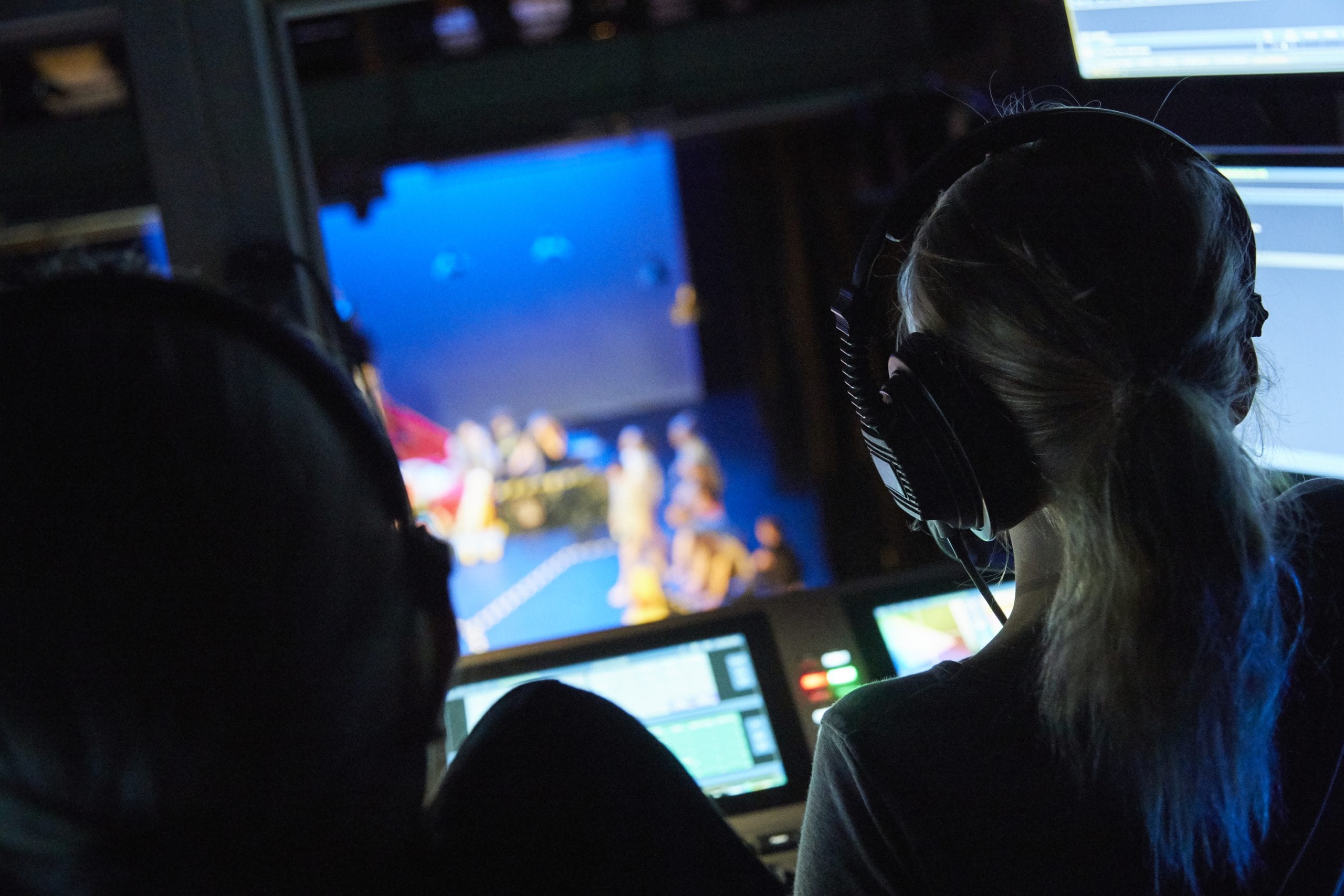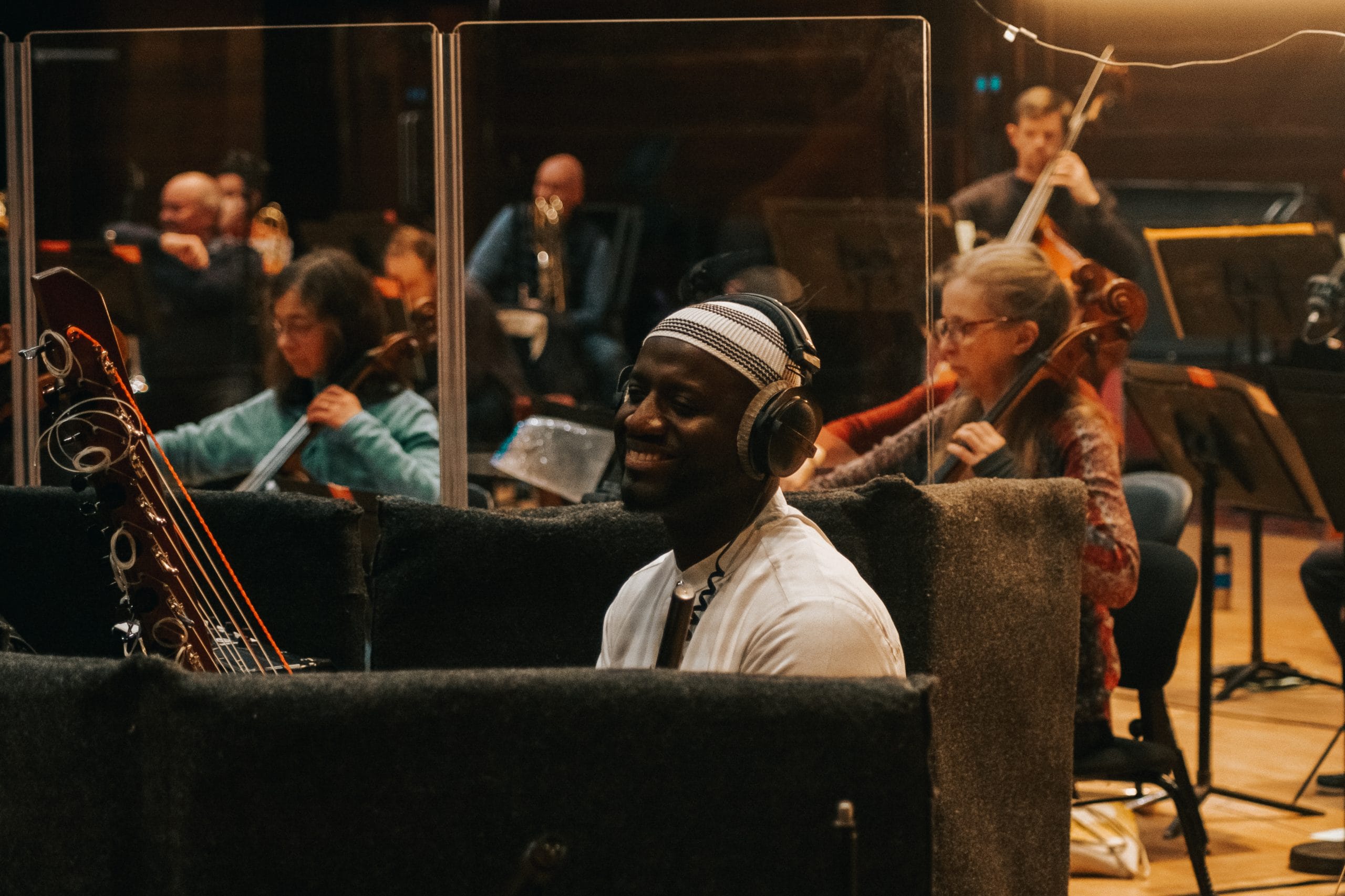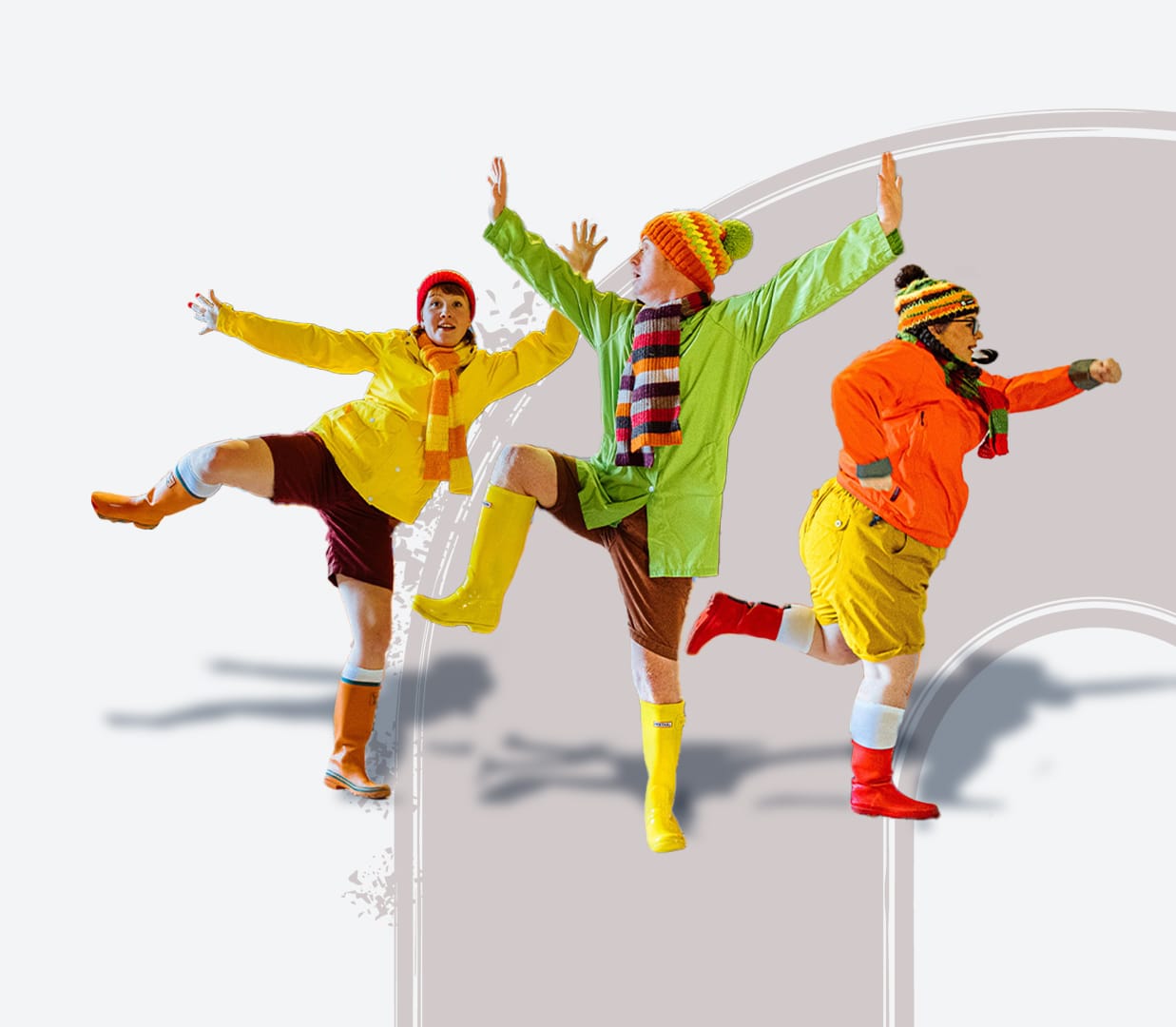‘Be proud. Be who you are. Be more penguin.’
Hamzeh Al Hussien’s beautiful storytelling shines in his show Penguin. Spanning from his childhood in Syria, to the Za’atari refugee camp in Jordan, to Gateshead, the performance vividly and movingly evokes each stage of Hamzeh’s journey.
Penguin is truly special, and like nothing I’ve seen before. Hamzeh seamlessly blends interpretive dance, comedy sketches and audience interaction into a moving melting pot of experiences. The continued theme of marbles threads the show in a very human motif, most notably when Hamzeh invited audience members to join him in a game, and thus join him in his community.
Community is the strongest word which came to mind whilst watching Penguin, as an intersectional exploration of Hamzeh’s Syrian and disabled identities. At Lakeside Arts, it felt as though the audience truly came together to celebrate multiculturalism, especially in the post-show discussion conducted partly in Arabic, partly in English.
Bilingualism and language play an important role in Penguin. The show’s most unique (and my favourite!) feature was the subtitles which played alongside Hamzeh: on one side in English and one side in Arabic. In the post-show discussion, Hamzeh detailed the added challenge of having to be word-perfect on the script… when it was playing behind you for the audience to see. No ad-libbing allowed!
While the subtitling increased accessibility for non-English speakers, they were also an important access arrangement for disabled audience members. Artistic director Amy Golding mentioned how integrating subtitles into the set design combatted the common challenge of subtitling being isolated from performances. An introduction to the show by Hamzeh’s brother strengthened the show’s inclusivity and reinforced the community feel in the theatre. Hamzeh’s message was clear: everyone is welcome here.
Often, it was easy to forget that just one performer was conjuring the onstage magic, as Hamzeh so vividly conjured the Za’atari camp. The achronological structure was engaging, and it was believable that Hamzeh had found it difficult to decide which stories to include. A more linear structure might have created a stronger narrative, but Hamzeh’s skills as an entertainer shone in the brief, sketch-like episodes.
‘Penguin’: originally a childhood insult transformed into an identity which Hamzeh reclaims in the show. The performance is full of challenge and pride, empowering both his Syrian and disabled identities. The audience is enveloped in a sense of community, and powerfully encouraged to ‘be more penguin’.
